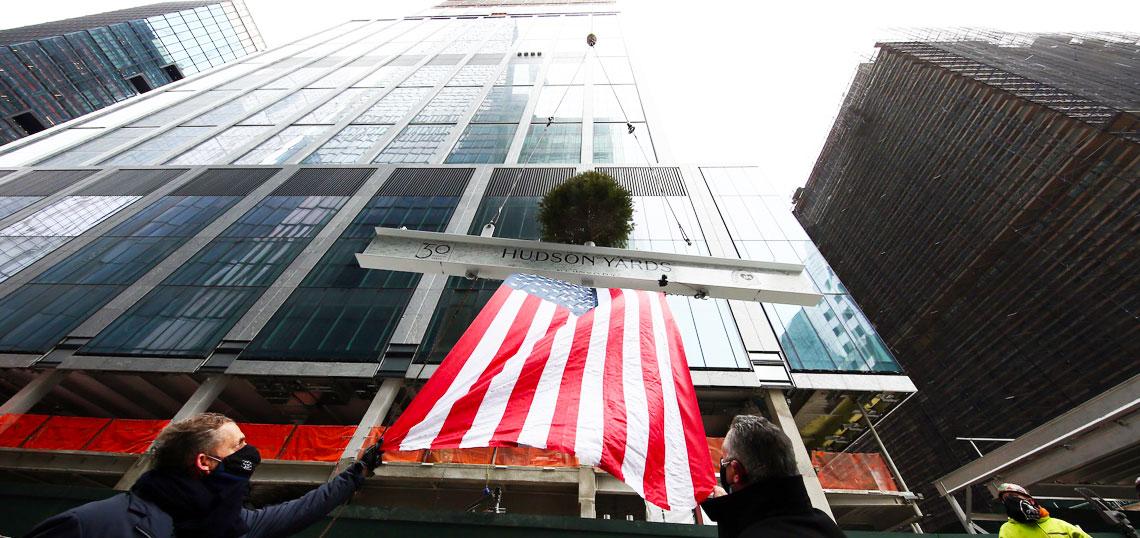What we're reading this week:
 Related Companies / Foster + Partners
Related Companies / Foster + Partners
One of the city's largest office towers tops out: "The Foster + Partners-designed 50 Hudson Yards reached its 1,011-foot summit last week, becoming the city’s fourth-biggest office tower by square footage. Developed by Related Companies and Oxford Properties Group, the 2.9 million-square-foot stone and glass structure completes phase one of the Hudson Yards mega-development." (6sqft)
Amazon won't be opening new HQs in Long Island City, but they will be setting up a delivery station: "The e-commerce giant has signed a lease for about 20,000 square feet at 38-50 21st St. in the Queens neighborhood, it announced Tuesday. It plans to open the delivery station there during the second half of the year." (Crain's)
6 alternatives ideas to mandatory inclusionary housing: "IDEA 1: Create incentives for owners of single-family homes and rowhouses to create what is called an “auxiliary unit” or a “granny flat.” Done properly, this could create about 200,000 new housing units at the low end of the market, dispersed around the city. That is 100 times the number of units the MIH program has produced! Moreover, it benefits the middle class who own the houses, not the world’s real estate speculators. (Note we are not talking about the legalization issue of existing conversions which is also a fine, but limited idea)."
Restaurants are increasingly struggling to pay rent: "More and more New York City eateries can’t cover their entire rent bill as the coronavirus pandemic continues to pummel the industry, a new survey released by the New York City Hospitality Alliance found. The trade organization found that 92 percent of the more than 400 restaurants it surveyed couldn’t pay full rent in December, the first time the metric went above 90 percent since the alliance started the report in the summer." (Commercial Observer)
Small NYC landlords are the second-most likely in U.S. to default: "Owners of single-family rental properties are more at risk of defaulting on a mortgage in Manhattan than almost anywhere else in the country, according to a new study from RealtyTrac. The study focused on three factors to determine which counties across the nation face the highest risk of defaults: the percentage of properties in the county that are rentals, the county’s unemployment rate and how leveraged the county’s rental properties are. New York County’s risk score was about 70.6 out of 100 based on the criteria..." (Crain's)
Manhattan apartment sales skyrocketed in January: "Manhattan home sales sizzled last month, pushed to a seven-year high by NYC bargain hunters taking advantage of pandemic pricing. Contracts were signed for more than 900 condos and co-ops, representing the best January since 2014 and a 28% increase over the 711 apartments sold in January 2020, a Corcoran Group analysis showed." (NY Post)
Toll hikes at bridges and tunnels approved: "The MTA Board approved an increase in tolls at bridges and tunnels, but they put the brakes on a similar hike for subway, bus and rail fares until the summer. The increase raises the one-way toll for New York E-ZPass users at major MTA crossings to $6.55, up from $6.12. Non-New York E-ZPass drivers will pay $10.17, up from $9.50. Staten Island commuters will continue to have a resident discount, and the post rebate toll to cross the Verrazzano Narrows Bridge increases to $2.95, up from $2.75." (ABC7NY)







